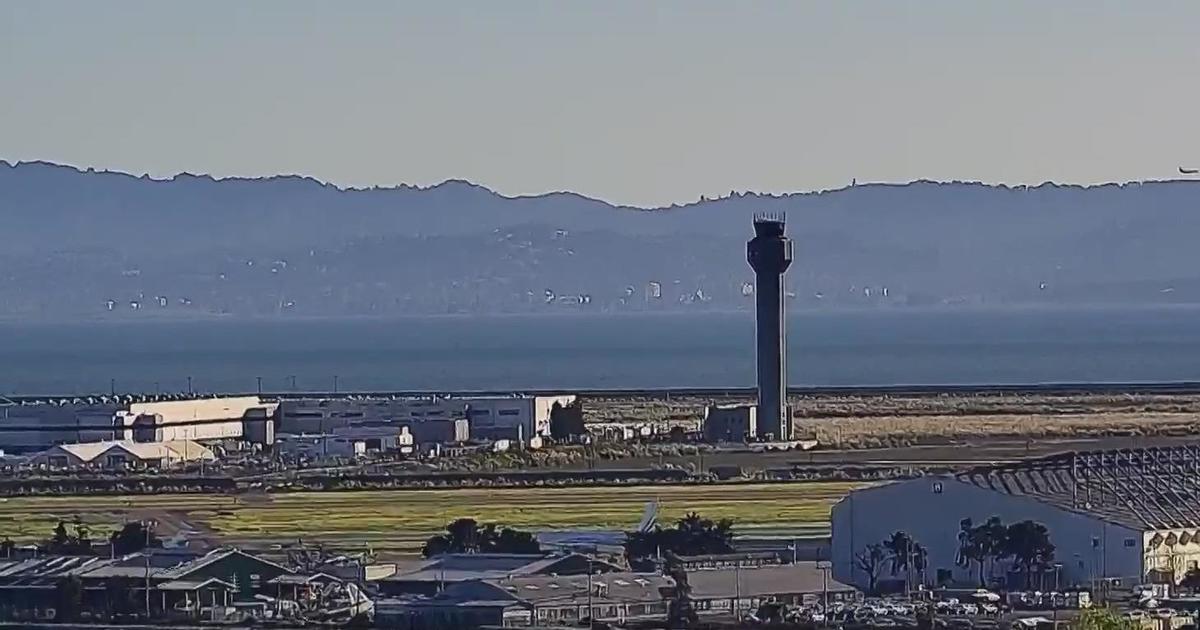Delayed Tariffs On Chinese-Made Electronics Buys Time For Apple, Big Tech
CUPERTINO (CBS SF / CNN) -- Dozens of tech companies are gearing up to announce new cell phones, laptops, video game consoles, toys and other gadgets for the holiday season. Those companies — and their customers — just dodged a bullet Tuesday. Most of those products would have gotten pricier because of new tariffs that the United States just delayed.
President Donald Trump had planned to implement a 10% import tax on $300 billion of Chinese imports not already subject to tariffs on September 1. That would have included many electronics, as well as other consumer goods like toys and footwear. The announcement looked like another sign the US-China trade war was back on, and caused havoc in the stock market.
But the Trump administration said Tuesday that it now plans to wait until December 15 to impose tariffs on many of those consumer goods. The delay will stave off immediate challenges for the tech industry, which would be directly harmed by this increase, but it also extends the uncertainty many had already been grappling with as a result of the trade war. Stocks for Apple, Microsoft, Intel and others fell sharply after Trump tweeted about the tariffs earlier this month, but rebounded after the delay was announced.
Many of the companies had asked for exemptions after Trump first proposed the new tariffs in June.
The 10% tariff increase would bring the total amount of tariffs paid by the tech industry to $2.7 billion a month from the $1.7 billion it paid in June, according to the Consumer Technology Association.
Companies now have more time to decide how to handle the new import taxes.
They have essentially three choices: They could absorb the cost of the tariffs themselves, a move that would weigh on profits and could force them to cut spending on research and development. They could move some production out of China, which would be expensive and could take years. Or they could pass the cost on to consumers, which would raise prices and could weaken demand.
The response will probably be some combination of the three.
"Tariffs are taxes — and increasing costs on companies puts consumers in the middle of President Trump's trade war," Consumer Technology Association President Gary Shapiro said in a statement last week.
Apple's iPhone dilemma
Apple in particular is positioned to be hurt by the tariffs now set to take effect in December. Apple, based in Cupertino, generates 17% of its revenue from China. The company has a major manufacturing facility for iPhones, sales of which still account for nearly half of the company's overall revenue, in the country.
Apple probably could absorb the first round of tariffs without raising prices for consumers and risking weaker demand for iPhones and other products, said Dan Ives, an Apple analyst at Wedbush Securities, in a note to investors Tuesday morning. But if tariffs stay the same — or go up — into 2020, Apple will have no choice but to raise iPhone prices by $75 to $100 per smartphone in the United States, Ives said.
If the trade dispute and tariffs continue, Apple will have to raise prices eventually, because the cost of absorbing the full cost of the import taxes are steep. If the tariffs are implemented in December as planned and the company absorbs the cost, Apple's profits could fall $0.50 per share, Ives said.
But tariffs are a double-edged sword: If Apple passes the costs on to consumers, that would sting too. IPhone sales would fall by 6 million to 8 million, Ives said, which would also hurt profits.
What is clear is that the company will be helped by the delay. Apple and many other tech companies count on the second half of the year, with new product announcements and the holiday season, to drive sales.
Moving out of China
The tariffs may be motivated in part by Trump's desire to push companies to return some manufacturing to the United States. But Ives said such a move would be "prohibitively expensive." Tech companies have spent decades building up interconnected supply chains — which include parts suppliers, trained labor and transportation routes — to support manufacturing in China. Moving away from that network is a slow and expensive process that could be difficult to invest in if tariffs are already weighing on companies' profits.
If tech companies did move production out of China, it would probably be to countries in Southeast Asia, close to the existing supply chain, rather than to the United States.
Apple has been rumored to be considering this route after a senior executive Foxconn, the Taiwanese contract manufacturer that makes most of Apple's smartphones in China, told Bloomberg in June that the company could make all US-bound iPhones outside of China. But on Apple's most recent earnings call, CEO Tim Cook told analysts not to "put a lot of stock" in that idea.
Even if it did move some production out of China, it might not be enough to hold down iPhone prices in the short term. Ives estimates it would take Apple 18 months to move just 5% to 7% of its production to India or Vietnam.
© Copyright 2019 CBS Broadcasting Inc. All Rights Reserved. The Associated Press contributed to this report.



